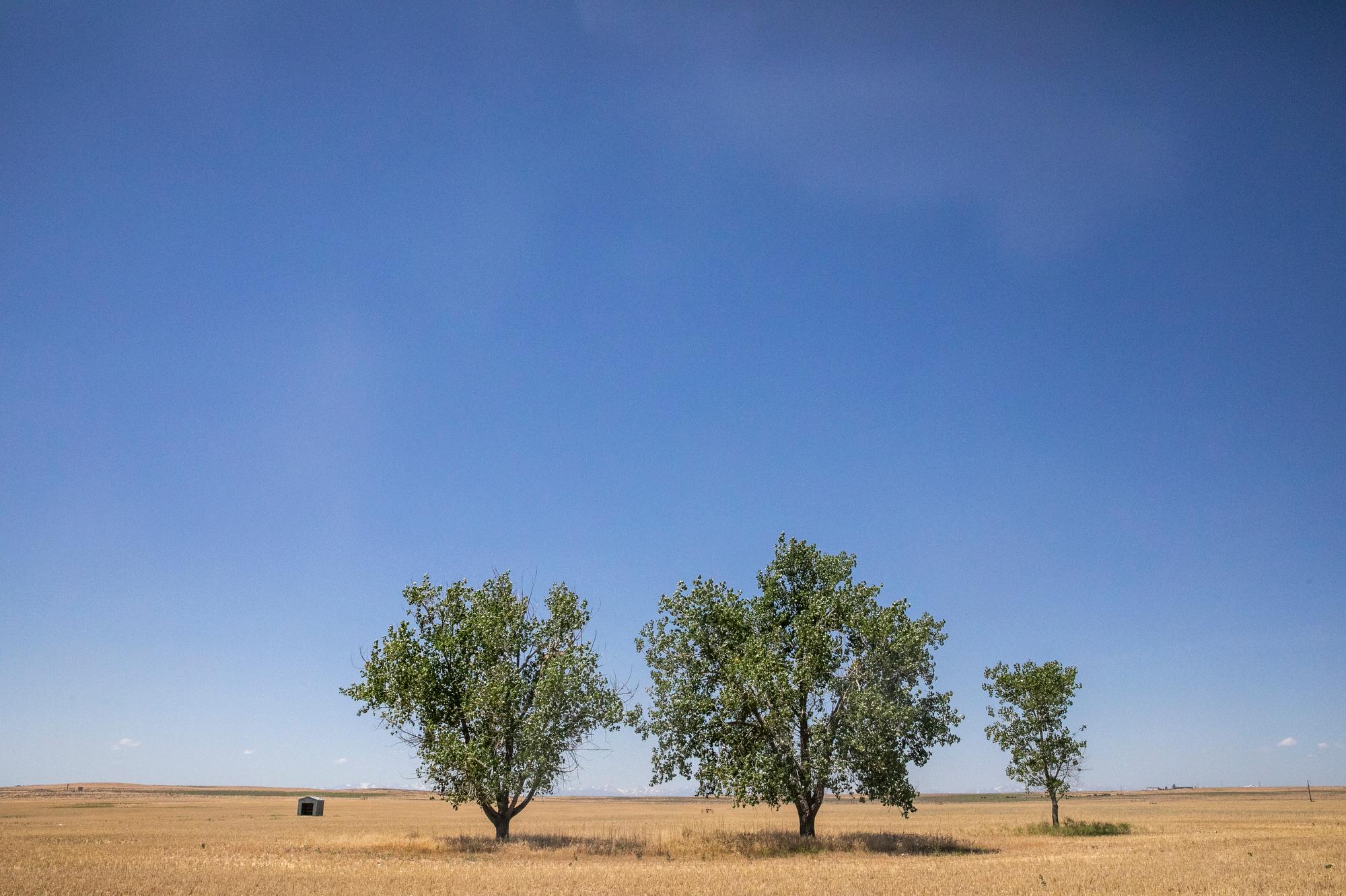
With a 2020 that brought environmental and health challenges to the forefront for farmers and ranchers, the Colorado Department of Agriculture is now looking ahead to the new year to build in more resilience into the state's food systems.
Commissioner Kate Greenberg said this year has proven that even during an unprecedented time, "agriculture is foundational to who Colorado is."
The department has outlined a series of goals for the upcoming year, said Greenberg. These include supporting the next generation of farmers and ranchers through training; strengthening and diversifying market opportunities; and focusing on increased climate stewardship.
Wil Bledsoe, a 4th generation rancher from Wild Horse on the Eastern plains, said this year showed him "to always expect the unexpected in agriculture," especially in the livestock sector.
"2020 has just reiterated the fact of what we've seen for 100 years," said Bledsoe. "Every year or two there's gonna be at least one thing coming your way, and [you] hope you have a little luck on your side and you keep going forward."
- Record Drought Puts Colorado Farmers And Ranchers On The Front Line Of Climate Change
- ‘2020 Is Something I’d Like To Forget.’ Southern Colorado Farmers Adapt Through Coronavirus And Drought
- A Surprise Coronavirus Business Boom In Colorado: Milk Delivery
- As The Growing Season Starts, Colorado Farmers Contend With Shifting Markets Due To COVID-19
One change agricultural producers have seen this year is an increase in direct-to-consumer sales. That can take the form of farmer's markets, Community Supported Agriculture (CSA), or producers creating websites to sell products online.
Dawn Thilmany McFadden, a professor with Colorado State University, said online platforms have transformed the way consumers find and purchase agricultural products in 2020. She said surveys she's conducted have shown online purchasing increase by 20 percent.
"We thought we would see some waning of that, but we haven't so far, and with the second wave I don't think we will," said McFadden.
Restaurants have also pivoted to online platforms to adapt to coronavirus challenges. Adam Schlegel, founder of Denver restaurant Chook Chicken, said restaurants are "literally changing what they do overnight" to respond to consumer needs.
A year ago, Schlegel said takeout was about five percent of his sales. Now it's over 90 percent, and said he expects this to continue next year. He said his thoughts on 2021 are "buckle up."
"I think so many of these changes that we've seen through society are only going to want to accelerate," said Schlegel. "If you thought this year was rough, I think we're still in for a very interesting ride."









